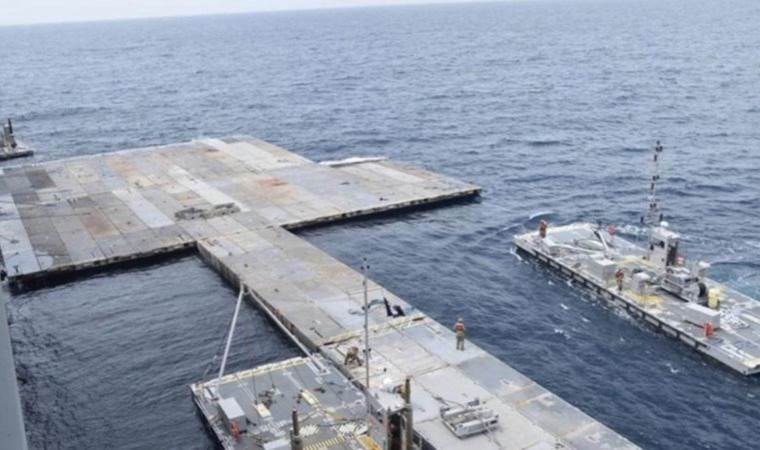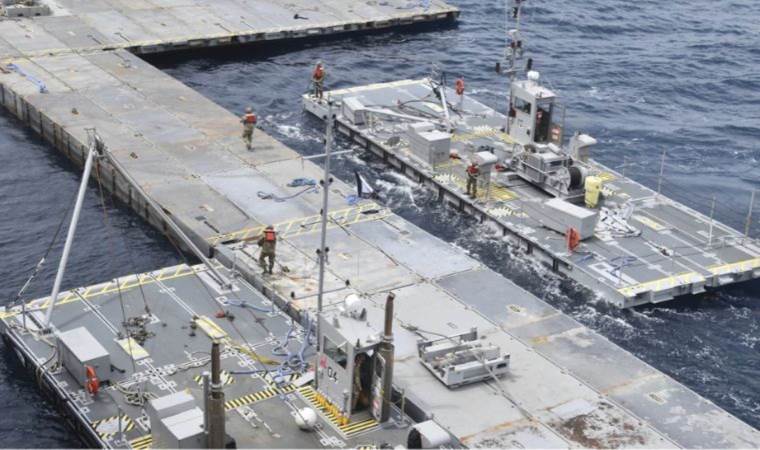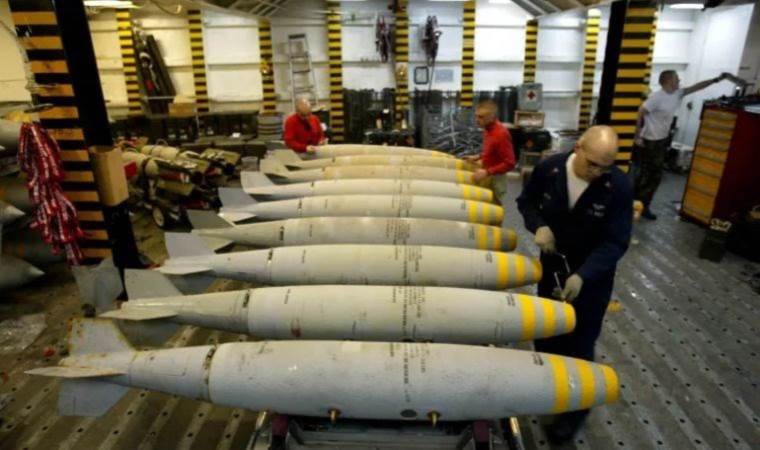US to completely remove temporary port in Gaza
The U.S. administration has announced that the floating port, initially established to deliver "humanitarian aid" to Gaza and dismantled due to "adverse weather conditions," will be permanently removed.

U.S. National Security Advisor Jake Sullivan stated in a press briefing that the floating port is no longer necessary for delivering aid to Gaza and will be fully dismantled.
Sullivan noted that the final decision would be announced by the U.S. Central Command (CENTCOM), saying, "I expect that we will cease port operations completely in the near future."
Sullivan emphasized that the issue in Gaza is now "ensuring the safe delivery of aid to people" rather than merely bringing aid into Gaza. He explained, "Our current focus is not on delivering aid from outside but distributing it within Gaza. This situation has influenced our decision regarding the port's remaining duration."
Background
Pentagon Press Secretary Brigadier General Patrick S. Ryder had previously stated that the latest attempt to redeploy the port had failed due to "technical and weather-related issues." He announced that the port, support vessels, and other equipment would return to the port of Ashdod in Israel and remain there "until further notice."
President Joe Biden, in his State of the Union address on March 7, had announced the plan to send a temporary port to deliver humanitarian aid to the people of Gaza.
The Biden administration aimed to bypass the barriers imposed by the Israeli government that slowed the entry of humanitarian aid into Gaza by land. Consequently, the Pentagon dispatched the U.S. engineering units' floating port system, JLOTS, to the shores of Gaza.
After more than two months of transit, the floating port became operational for the first time in mid-May. Following damage caused by a storm on May 25, the port was repaired in Israel and re-established on the Gaza coast.
As the area where the U.S. was unloading humanitarian aid on the Gaza coast approached capacity, there was no information on how much aid had actually reached the Gazans. This led to questions about the effectiveness of the floating port project, which had turned into a source of disappointment for the people of Gaza.



